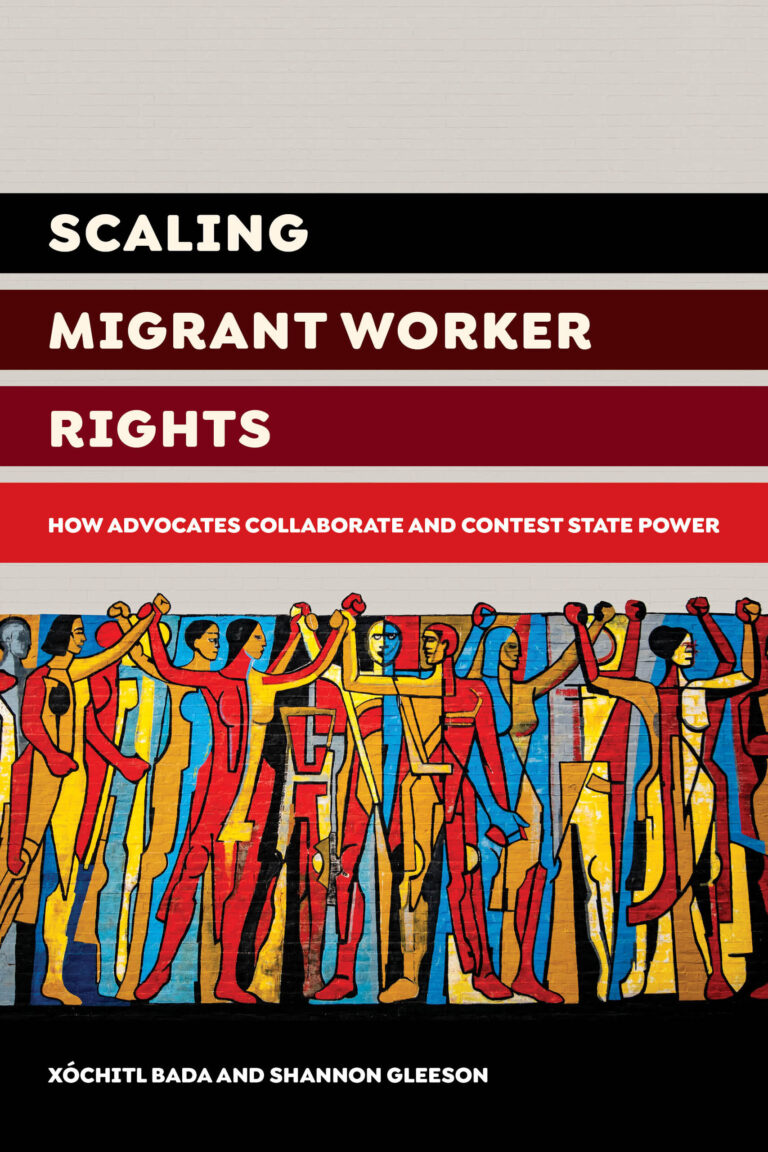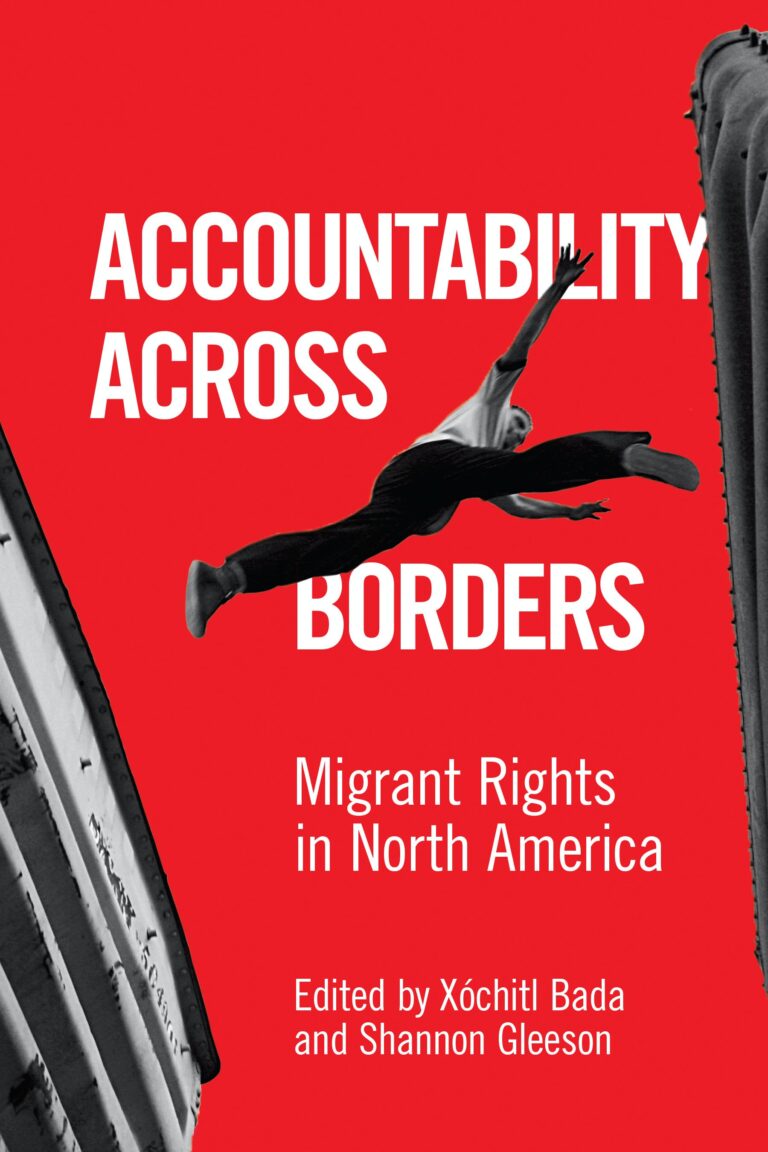Migrant Worker Rights
U.E.-F.A.T. Hands in Solidarity, Hands of Freedom Mural by Daniel Manrique, 1997
Scaling Migrant Worker Rights
HOW ADVOCATES COLLABORATE AND CONTEST STATE POWER
As international migration continues to rise, sending states play an integral part in “managing” their diasporas, in some cases even stepping in to protect their citizens’ labor and human rights in receiving states. At the same time, meso-level institutions—including labor unions, worker centers, legal aid groups, and other immigrant advocates—are among the most visible actors holding governments of immigrant destinations accountable at the local level. The potential for a functional immigrant worker rights regime, therefore, advocates to imagine a portable, universal system of justice and human rights, while simultaneously leaning on the bureaucratic minutiae of local enforcement. Taking Mexico and the United States as entry points, Scaling Migrant Worker Rights analyzes how an array of organizations put tactical pressure on government bureaucracies to holistically defend migrant rights. The result is a nuanced, multilayered picture of the impediments to and potential realization of migrant worker rights.

Accountability Across Borders
MIGRANT RIGHTS IN NORTH AMERICA
Collecting the diverse perspectives of scholars, labor organizers, and human-rights advocates, Accountability across Borders is the first edited collection that connects studies of immigrant integration in host countries to accounts of transnational migrant advocacy efforts, including case studies from the United States, Canada, and Mexico.
Covering the role of federal, state, and local governments in both countries of origin and destinations, as well as nongovernmental organizations (NGOs), these essays range from reflections on labor solidarity among members of the United Food and Commercial Workers in Toronto to explorations of indigenous students from the Maya diaspora living in San Francisco. Case studies in Mexico also discuss the enforcement of the citizenship rights of Mexican American children and the struggle to affirm the human rights of Central American migrants in transit. As policies regarding immigration, citizenship, and enforcement are reaching a flashpoint in North America, this volume provides key insights into the new dynamics of migrant civil society as well as the scope and limitations of directives from governmental agencies.
